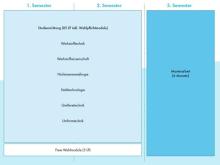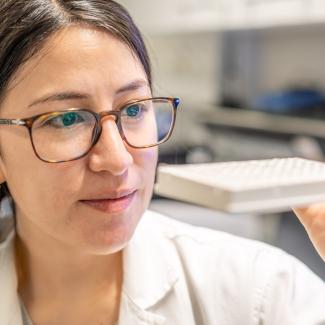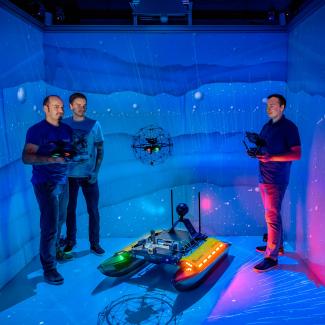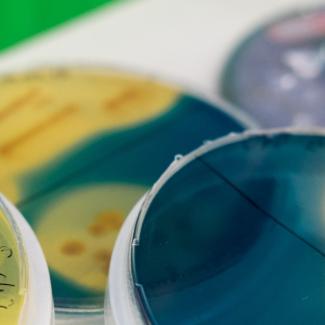Materialwissenschaft und Werkstofftechnologie
With the aim of making the world safer, more sustainable and smarter, scientists in Freiberg are researching innovative materials and technologies in collaboration with national and international partners. On the Master's degree programme in Materials Science and Technology, students not only learn the basics of the subject, but also gain in-depth knowledge of future topics such as mobility, communication systems and high-performance materials.
In order to be able to manufacture products, the properties of the materials used must be matched to the respective application. To do this, it is important to know what influences the material properties and how materials with the desired properties are manufactured. From glass, ceramics, plastics and metals to composites or semiconductor materials, the range of materials is so broad that students have to focus on specific groups in a single degree programme. The focus is therefore on metallic materials and semiconductor materials.
Applicants with a 6-semester degree
Applicants with a 6-semester degree must complete an adaptation semester (30 credit points) as part of their degree programme. In this case, the standard period of study is adjusted to 4 semesters.
Please note that this is a German-language degree program. At TUBAF we offer a variety of English Master's degree programs. Click here for an overview.
Fields of study
Materials science
Students learn how the properties of metallic and ceramic materials as well as the properties of semiconductors are related to their crystal structure and microstructure. In particular, principles are taught on how the properties of these materials can be specifically adjusted by designing their microstructure with the help of physical and chemical processes.
Materials engineering
This field of study focuses on the behaviour of materials in operational use as well as component design measures such as heat treatment, surface technology, corrosion protection and joining technology.
Non-ferrous metallurgy
Students learn about the technologies used to produce non-ferrous metals, their applications and areas of use, as well as issues relating to sustainable use and recycling.
Steel technology
Students acquire knowledge and skills relating to the fundamentals and technologies for the production of pig iron and steel, steel materials and their optimisation for different fields of application.
Foundry technology
Students are taught all the key aspects of modern foundry engineering - including knowledge of casting and moulding processes, casting materials and the sequence of processes in foundries.
Forming technology
Students learn about forming processes and the interactions between the forming process, forming behaviour and property development of metallic materials. The course also focuses on the modelling and simulation of forming processes and the development of new system concepts.
- Faculty
-
Faculty of Materials Science and Technology (Faculty 5)
- Degree
-
Master of Science (M. Sc.)
- Standard period of study
-
3 Semester
- Part-time possible
-
Yes
- Start of studies
-
Summer semester
- Admission requirement
-
Bachelor's degree in Materials Science and Technology from the TU Bergakademie Freiberg or a related degree programme
Language requirement
- Application: with at least B1 level German
- Admission to the degree program: with C1 level German (e.g. DSH-2)
- Language courses and DSH exam at TUBAF
- Course language
-
German
Material production, processing, application, development: e.g. development and production engineer, quality assurance
Other fields of activity: e.g. public service in federal and state authorities, employers' liability insurance associations, private and public testing institutes
Why should you study Materials Science and Technology at TUBAF?
Students find the best study conditions thanks to solid professional support. State-of-the-art equipment and laboratory facilities are available to them. Students have the opportunity to be involved in scientific work at an early stage as student assistants and to work closely with doctoral students on research into new composite materials.
The close link between manufacturing technologies, material properties and applications as well as the internal structure of the materials practised in Freiberg is unique at German universities. This understanding in particular is an essential prerequisite for a successful career in the field of materials science and materials technology. And this is precisely where the degree programme in Freiberg differs significantly from other universities in Germany.
Suitable Bachelor's degree programme
Bachelor's degree programme Material Science and Materials Technology
Interests and skills you should bring with you
Combination of interest in natural and engineering sciences, production and application of materials, but also: "What holds the material together at its core?"
Image video
The world of materials



